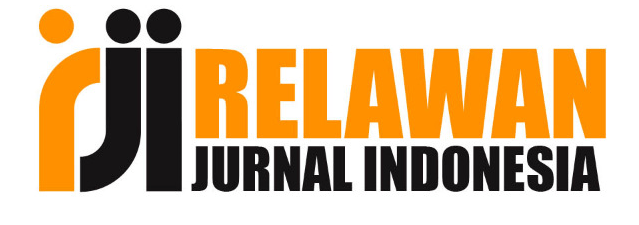Aktifitas Kunyit (Curcuma domestica Val.) Sebagai Antiinflamasi Ditinjau Dari Berbagai Literatur
Abstract
Inflammation is a normal protective response to tissue injury caused by physical trauma, damaging chemicals, or microbiological substances. Steroids and nonsteroidal anti-inflammatory drugs have many side effects, so there are many anti-inflammatory developments originating from natural ingredients, especially in plants. Plants that are scientifically proven to have anti-inflammatory properties, namely turmeric (Curcuma domestica Val.) The method used in this literature study is a review of various journals published online, with the keyword turmeric as an anti-inflammatory, reviewed one by one and then the journals obtained are collected and information created by summarizing the content and then comparing the journals to be used as references. The results showed that turmeric tested had anti-inflammatory activity. The strength of the anti-inflammatory effect is shown by the carrageenan induction method which inhibits endema in rat feet and inflammation in the liver using the method of induction by diethylnitrosamine in this plant varies, depending on the dose. Compounds that are considered to provide anti-inflammatory activity are curcumin class compounds because they can inhibit the formation of prostagladin, thromboxan, and prostagycycline by inhibiting the activity of the cyclooxygenase enzyme. Curcumin also inhibits the formation of leuketrien compounds by inhibiting the activity of the lipoxygenase enzyme.
Keywords
Full Text:
PDFReferences
Anindita, A Y. 2010. Pengaruh Kebiasaan Mengkonsumsi Minuman Kunyit Asam Terhadap Keluhan Dismenorea Primer pada Remaja Putri di Kotamadya Surakarta. Surakarta : Universitas Sebelas Maret.
Anonymous. 2010. Serial tanaman obat, kunyit, BPOM, Jakarta, Available from Tanamanobat.com/kunyit (diakses tanggal 1 juni 2020)
Barber, P dan Robertson D. 2012. Intisari Farmakologi untuk Perawat. Jakarta : EGC Press. Chang, S J, Chen C J, Tsai F C, Lai H M, Tsai P C, Tsai M H, Ko Y C.
Chuang, SE, Chen, AL, Lin, JK. 2000. Inhibition by curcumin of diethylnitro samine-induced hepatic hyperplasia, inflammation, cellular gene products and cell-cycle related protein in rats. Food Chem. Toxicol. 38, p. 991 – 25
Chu Yuan, Shan and Yoppi Iskandar. Studi kandungan kimia dan aktivitas farmakologi tanaman kunyit (Curcuma longa L.)." Farmaka 16.2 (2018).
Erlina Rustam dkk (2007). Efek Antiinflmasi Ekstrak Etanol Kunyit (Curcuma domestica val) Pada Tikus Putih Jantan Wistar. Indonesia.
Furst, DE, Urlich, R.W & Prakash, S. 2013. Anti-inflamasi Non-steroid, Antirematik, Pemodifikasi Penyakit, Analgetik Non-opioid, & untuk Gout. Dalam: Katzung,B.G. Farmakologi Dasar & Klinik.Edisi 12 Vol.2. Jakarta: EGC.
Goodman G. The Pharmacological Basis of Therapeutics; Analgesic-Antipyretic Agents. Edisi ke-12. New York/Toronto: Mc Graw-Hill; 2008. Hal. 959-1000.
Hartati,Sri Yuni. "Khasiat kunyit sebagai obat tradisional dan manfaat lainnya." Warta Penelitian dan pengembangan tanaman industri 19.2 (2013): 5-9.
Kohli K, Ali J, Ansari MJ, Raheman Z. 2005. Kurkumin: A natural anti-inflammatory agent. Indian J Pharmacol 37:141-7.
Lee, se-Eun, Lim Cheyeon, Kim Hyungwoo, Cho Suin. 2016. a study of the anti inflammatory effects of the ethyl acetate fraction of the methanol extract of forsythiae fruct us, Afr. J.Tradit. Complement Altern Med. (2016) 13(5):102-11.
Manurung, Nur Ramadhani Maung, and Sri Adi Sumiwi."Aktivitas antiinflamasi berbagai tanaman diduga berasal dari flavonoid." Farmaka 14.2 (2016): 111-122.
Meilina Rulia, Rasmadin Mukhtar “Efek Antiinflamasi Ekstrak Etanol Rimpang Kunyit (Curcuma domestica Val.) pada Tikus Putih yang Diinduksi Karagenan” Journal of Healthcare Technology and Medicine Vol. 4 No. 1 April 2018 Universitas Ubudiyah Indonesia.
Putri Kholilah,Maulida and Bayu Indradi. "Aktivitas Farmakologis Zingiber Officinale Rosc, Curcuma Longa L., Dan Curcuma Xanthorrhiza Roxb." Farmaka 17.2 (2019): 150-160.
Suryani S., Wahyuni, W., & Benny, F. (2015). Uji Efek Antiinflamasi secara In Vivo Nanopartikel Kurkumin yang Diformulasikan menggunakan Metode Reinforcement Gelasi Ionik. Pharmauho: Jurnal Farmasi, Sains, dan Kesehatan, 1(1).
DOI: http://dx.doi.org/10.52118/edumasda.v5i1.120
Refbacks
- There are currently no refbacks.
Copyright (c)
Sekolah Tinggi Ilmu Kesehatan Kharisma Persada
Pajajaran Street Number 1 Pamulang,
South Tangerang City, Banten Province, Indonesia, 15417
Telephone: 021-74716128 / Handphone : 081384462729

Edu Masda Journal by Sekolah Tinggi Ilmu Kesehatan Kharisma Persada is licensed under a Creative Commons Attribution-ShareAlike 4.0 International License.
Based on a work at http://openjournal.masda.ac.id/index.php/edumasda/index.




